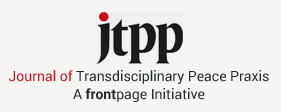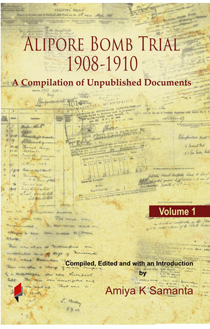Description
Online Buying Price: £ 59.95; INR 1,895; $ 82.95
Alipore Bomb Trial or Maniktala Conspiracy Case, as it is popularly known, occupies a significant place in the history of India’s freedom struggle. Having failed to kill Lieutenant-Governor Andrew Fraser after two attempts, on 30 April 1908, two teenagers named Khudiram Bose and Prafulla Chaki blasted a carriage at Muzaffarpur, Bihar mistaking it in darkness as the carrier of D H Kingsford, former Chief Presidency Magistrate, Calcutta. The Government acted with speed and success, and eventually 36 persons, including Sri Aurobindo, Barindra Kumar Ghose (younger brother of Sri Aurobindo), Upendra Nath Banerjee, Ullaskar Datta, Hemchandra Das were arrested and committed to trial in Alipore Sessions Court for “waging war against the King-Emperor”.
Alipore Bomb Trial, 1908-1910: A Compilation of Unpublished Documents, Volume 1, which includes hitherto unpublished documents related to the trial vis-a-vis the statements of all 206 witnesses along with 1,575 documents and materials placed before the court, is an invaluable companion for the students, researchers, academia and the general readership as well.
With a researcher’s acumen coupled with his long experience in dealing with criminal intelligence, the author critically examines the issues like Aurobindo’s ideas on violent struggle and much ‘published’ influence of religion on early revolutionary terrorism, circumstances that led to the expansion of the secret societies, ‘daring actions’ like the murder of Naren Gossain, the approver, inside the jail, killing of Police Officer Nandalal Banerji for trying to arrest Prafulla Chaki at Mokama Ghat Station, elimination of Ashutosh Biswas for acting as the prosecutor in the case, assassination of Rai Bahadur Moulavi Shamsul Alam for fabricating evidence against the accused and murder of Intelligence Officer Madhusudan Bhattacharya who traced the Garden as the centre of ‘conspiracy’.
Amiya K Samanta, an alumnus of Presidency College, Kolkata, joined the Indian Police Service in 1962 after a short stint as a teacher. He retired in 1995 as Director General of Intelligence Branch, West Bengal and thereafter served in the State Pay Commission, State Police Commission, West Bengal. He taught in the National University of Juridical Sciences, Kolkata for five years.
Samanta did his Ph D in Political Science in 1982, and the thesis was published as Left Extremist Movement in West Bengal in 1984. His other publications include: Terrorism in Bengal (Edited classified documents in 6 Vols, 1995), Gorkhaland Movement: A Study in Ethnic Separatism (2000), Vidyasagar (in Bengali 2010), Santrasbad (in Bengali 2011). Samanata also edited Hemchandra Kanungo’s Account of the Revolutionary Movement in Bengal (An English Translation of Bangalaya Biplab Prachesta, 2014).





